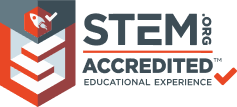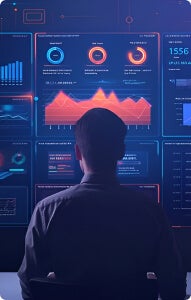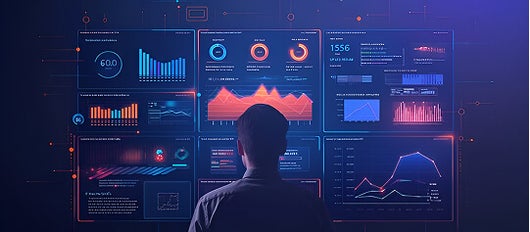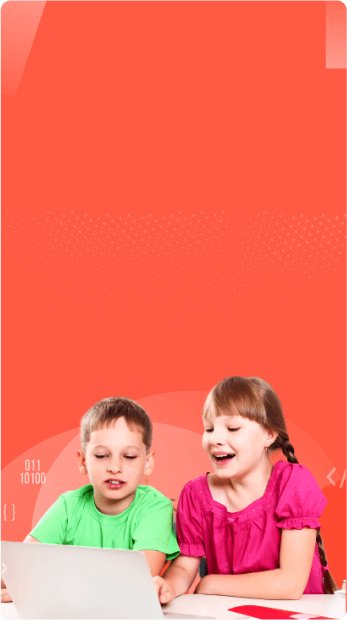
Learn Google Colab with the Top AI & coding Course Instructors for Kids and Teens
Google Colab is a cloud-based coding environment that allows kids to write and run Python code right in their browser without the need to install anything! It's like a digital notebook where students can combine code, visuals, and text in one place. In our courses, kids use Google Colab to learn AI concepts, build machine learning models, visualize data, and create exciting projects. It’s safe, accessible, and perfect for young learners stepping into the world of technology.
Modules, Lessons, 100+ Activities & Projects, Quizzes
生徒
国
4.6 / 5 stars
This course includes:
Choose from group or 1-on-1 personalized AI & coding lessons
Learn live with expert Computer Science teachers
Google Colab is seamlessly integrated into the curriculum, providing hands-on AI & coding experience
Engage in 100+ activities & projects designed to enhance practical skills
Students earn STEM.org accredited certificates, recognizing their achievements
Enjoy lifetime access to course content for continuous learning
Get unlimited 1:1 live doubt sessions with instructors for personalized support
Receive monthly progress reports to track your child's growth and performance
Lifetime access to Google Colab course content
What is a Google Colab for kids?
At Codingal, students explore Google’s Google Colab to understand the fundamentals of Artificial Intelligence in a fun, hands-on way. Tailored for Grades 3–8, Google Colab allows kids to train real AI models by teaching computers to recognize images, sounds, gestures, and poses using simple examples and no coding. Students then use the MIT Raise Playground to connect these models to Scratch, creating interactive games, smart characters, and AI-powered experiences. It’s an intuitive and beginner-friendly tool that helps kids understand how machines learn, while building creativity, problem-solving skills, and real-world AI knowledge.
An engaging Google Colab programming lessons for kids

What you will learn
How to write and execute Python code using Google Colab
How to visualize data using libraries like Matplotlib and Seaborn
Build AI-powered applications like chatbots and recommendation engines
How to collaborate on code and document their thought process using Colab notebooks
How to use real-world datasets and apply coding to solve practical problems

Skills you will gain
Python programming fundamentals
Data visualization and storytelling with charts
Machine learning model development
Cloud-based coding and file management
Logical reasoning and debugging
Real-world project planning and execution
Our Google Colab Class Curriculum
Our curriculum integrates Google Colab across multiple modules to make learning interactive and professional. Students start with data analysis using Pandas and Matplotlib, then explore advanced concepts like Machine Learning, Deep Learning, and Computer Vision—all within the Colab environment. Every capstone project and activity is designed to simulate real-world scenarios using this industry tool.
Fun trial lessons for kids & teens to learn Google Colab
Each lesson is paired with engaging, hands-on activities designed specifically for kids and teens. Whether it’s predicting monthly rainfall or visualizing their exam score, students explore exciting projects while learning how to code and analyze data in Google Colab.

Analyze Monthly Rainfall
Analyze and visualize monthly rainfall data using Python to calculate the average rainfall and display it in a bar chart with clear labeling and highlights.

Score Analyzer
Create a Python program to collect subjects and exam scores, display them as a bar chart, and analyze performance with average and highest scores.
Learn from experienced teachers. Our hand-picked AI & coding tutors ensure the best learning experience

Our instructors bring deep expertise in Computer Science and complete rigorous training before they teach; reflected in our exceptional Net Promoter Score (NPS) of 86. Students and parents consistently rate our teachers 4.9 out of 5, and our curriculum earns a 4.8 out of 5. We’re proud to have a faculty that’s 91% female and 9% male, creating an inclusive, encouraging learning environment.
Each tutor is trained to understand individual student needs and deliver personalized support—even in group settings. Plus, students have 24/7 access to expert tutors for instant doubt resolution, anytime they need help.

🎓 500+
Computer Science instructors👨💻 7+
コーディングの経験年数👩 91%
女性講師💻 10+
コーディング言語The best place for kids to learn the basics and fundamentals of Google Colab
At Codingal, we believe every child deserves a solid foundation in technology. Our structured approach starts with easy-to-follow lessons in Google Colab, guiding kids from basic Python syntax to advanced AI models. With personalized support, kids gain confidence and mastery step-by-step, making even the most complex topics feel simple and fun.
Hands-On experience with industry tools
Build real-world projects using Google Colab
Progressive & supportive learning environment
Flexibility and accessibility
Focus on creativity and problem-solving
STEM.org accredited educational experience and certificates

At Codingal, your child masters Data Science with Google Colab through a STEM.org–accredited program built on proven educational frameworks like Bloom’s Taxonomy, BIDE, and STEAM. Our curriculum is aligned with Common Core, state standards, AP Computer Science goals, and the K–12 Computer Science Framework ensuring learning that’s both age-appropriate and college-ready. Through hands-on, project-based learning, students create real-world apps like temperature converters and scientific calculators, applying math, science, and engineering logic to solve everyday problems. Backed by STEM.org’s rigorous audits, every Data Science lesson lays a strong, future-proof foundation in STEM.
Unlock your skills and earn your Google Colab certifications

In Codingal’s Grandmaster Data Science track, students in grades 6–12 progress through two modules; JavaScript Fundamentals and Advanced JavaScript starting with core concepts and advancing to real-world web development. They learn everything from variables and functions to APIs, async/await, and responsive design, turning lessons into polished apps and interactive websites. Upon successful completion, students earn the STEM.org-certified Coding Grandmaster Certificate; a valuable credential for academic portfolios, resumes, and college applications. With industry-relevant skills and a recognized certificate, learners graduate with confidence, a strong project portfolio, and a competitive edge for future studies and tech careers.
Our Google Colab classes are appropriate for middle school & high school students
At Codingal, our Data Science curriculum guides middle and high school students from writing their first line of Python code like print(“Hello, World”) to analyzing real-world datasets and building intelligent, data-driven applications. We start with beginner-friendly challenges that introduce core concepts such as variables, loops, and functions through engaging, hands-on notebooks. As students progress, they delve into advanced topics like data visualization, conditional logic, and statistical analysis, ensuring a smooth, steady learning curve. With every project, they reinforce their understanding of data structures, analytical thinking, and problem-solving, gaining the confidence to tackle increasingly complex data science challenges.

What students and parents have to say about our training program
Codingalは著名なエンジェル投資家のサポートを受けています
Codingalは大手投資会社と多数の著名なエンジェル投資家から多額の投資を確保しています。






More recommended courses for you
Frequently Asked Questions (FAQs) About Google Colab
Google Colab (short for Colaboratory) is a free, cloud-based platform that lets you write and run Python code directly in your web browser. It provides access to powerful computing resources, including GPUs and TPUs, making it ideal for machine learning and data analysis tasks.
Yes, Google Colab is completely free to use. It allows students to write and execute Python code without the need for software installation, making it accessible for learning coding and AI.
Kids and teens can learn Google Colab through structured, interactive classes that teach Python and data science concepts. At Codingal, students learn through hands-on projects and guided tutorials using Google Colab to grasp key programming concepts.
Google Colab is best suited for students aged 10 and up, especially those interested in learning Python, data science, and machine learning. It’s an ideal tool for beginners and intermediate learners who are comfortable using a computer and have a Google account.
Google Colab simplifies learning AI and coding by providing an interactive environment where kids can run Python code in real-time. It allows them to experiment with datasets, run AI models, and explore data science concepts without needing a powerful computer.
Yes, Google Colab supports Python as its primary language. It allows kids to write, execute, and experiment with Python code, making it an excellent tool for learning programming and exploring machine learning.
Google Colab is built on top of Jupyter Notebooks, offering similar functionality but with the added benefit of cloud-based computing. Colab provides free access to GPUs and TPUs, making it more suitable for heavy machine learning tasks, while Jupyter Notebooks typically runs locally on your device.
In Google Colab, kids can:
- Write Python code
- Solve math problems
- Create simple games
- Analyze data
- Train AI models for tasks like image recognition and text analysis
- Visualize data using graphs and charts
Yes, Google Colab is beginner-friendly. Its browser-based interface makes it easy to start coding without the need to install any software. Students can learn and experiment with Python and AI concepts through a simple, intuitive platform.
Python is already pre-installed in Google Colab, so you don’t need to install anything. You can start coding right away and use Google’s powerful cloud computing resources.
Yes, Google Colab is an excellent way for kids to start learning Python. It provides a smooth transition from block-based coding platforms to text-based programming. Kids can understand how code functions in Colab, and then apply that knowledge to more advanced Python programming.
While Google Colab is primarily designed for Python, it is possible to run C++ code by setting up the necessary environment and compilers. However, the platform is best suited for Python.
Google Colab is widely used for machine learning. Kids can train AI models using pre-built datasets, run machine learning algorithms, and experiment with neural networks, all while utilizing powerful cloud resources.
Yes, a Google account is required to access Google Colab. It allows users to save their projects in Google Drive and share them easily with others.
Google Colab is free to use, but users can upgrade to Google Colab Pro for $9.99 per month for enhanced features like more powerful hardware and longer session durations.




